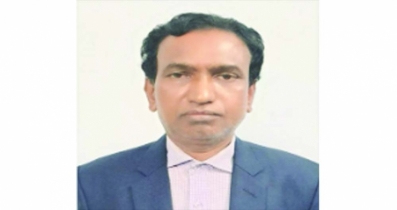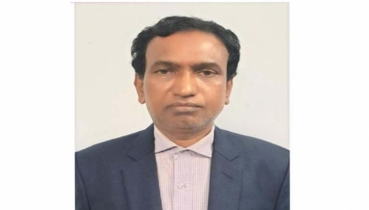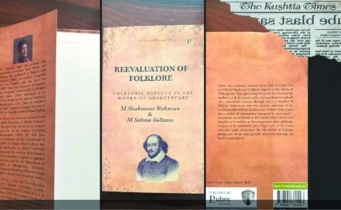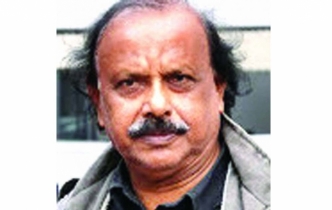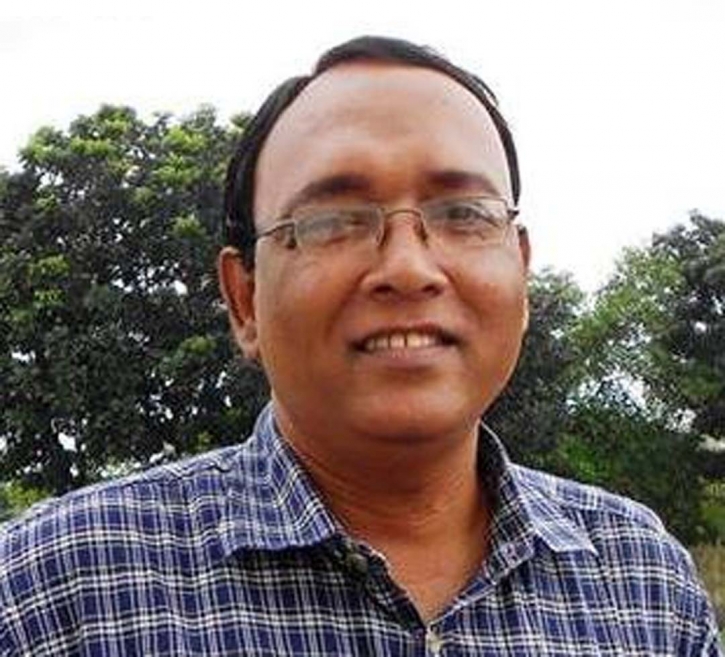
Freedom to do as one pleases without interfering with the rights of others said Herbert Spencer. Along with media freedom, informative, fact-based news is equally important. Anyone can criticize the government's activities. But when a series of falsehoods are purposefully committed, questions arise.
People may have many questions about all the news. According to the recommendation of the 26th General Session of UNESCO in 1991, the United Nations General Assembly in 1993 recognized May 3 as World Press Freedom Day. Following the basic principles of freedom of journalism and establishment of free media, evaluation of media freedom worldwide, taking oath to resist interference in freedom and remembrance of journalists who lost and gave their lives while performing their professional duties and honor and respect their memory is expressed on this day.
Surveys and evaluations by several organizations that monitor freedom of expression show that media risks are increasing around the world. In democracies, law commissions and judicial institutions have traditionally played a crucial role in strengthening press freedom. It is undeniable that the protection of the right to freedom of speech must be enjoyed by citizens and journalists subject to reasonable restrictions. This ensures a secure environment for media operations. If someone does not follow the rules, action can be taken against them according to the prevailing laws of the country. The Press Council has been strengthened to ensure media accountability, further enhancing the trust in media. According to the Information and Broadcasting Ministry's account, in the last era, the vast work of the Ministry of Information has led to unprecedented development of mass media in the country, and new horizons of free flow of information have been opened, fostering a sense of trust and reliability in the media.
According to the data of PID, more than two thousand new newspapers have been registered in this period for the development of mass media; In the private sector, 28 FM radios and 32 community radios have been approved, along with 44 new satellite television channels. At present, the total number of daily, weekly, fortnightly, monthly, quarterly, and six-monthly newspapers is two thousand 855. Bangladesh Television, BTV World, Sangsad Bangladesh Television, and Bangladesh Television with Chattogram Center are four government and 44 approved private satellite televisions. According to the PID report, the free flow of information is not just a necessity, but a catalyst for making the country's development sustainable, dynamic, and participatory. This underscores the optimistic role of media in shaping a better future.
The Ministry of Information and Broadcasting is working to implement this one of the principles of the current government. Part of that work is to ensure people's participation in development and the right to access necessary information, as well as strengthening the country's media. There is no desire to interfere with the freedom of the media. However, action will be taken against those who spread misinformation about the development of the government, said the Minister of State for Information and Broadcasting, Mohammad Ali Arafat. He said, there have been many lies about Rampal. The biggest lie is the lie about India. Reporting must have integrity. We welcome criticism of any kind, but not lies. The Minister said these things at a discussion meeting titled 'Free Media and Freedom of Expression in the Context of the Current Global Environmental Crisis' organized by UNESCO, Transparency International Bangladesh (TIB), and Article 19 on the occasion of 'World Press Freedom Day 2024'.
The Minister said that when it is misused in the name of freedom of the media, the consequences are very dire. In the last 15 years, Prime Minister Sheikh Hasina has played a major role in the expansion of media and its independence. The government is committed to ensuring media freedom. We are committed to protecting nature and the environment. In this regard, we welcome everyone who wants to cooperate with various information. We don't just want to develop, we want to do sustainable development, which will protect our environment. Bangladesh has played a commendable role in combating global warming. Increasing land grabbing, destruction of biodiversity in the name of development, and encroachment in the name of urbanization have now become a normal process. A section of the ruling class is benefiting from such an attack on the environment because they are protecting it. The civil society, including the media, who will work on these issues, is shrinking day by day. There are also weaknesses in the law. TIB notes that those who are supposed to enforce the law and ensure accountability are also complicit. Journalism is facing challenges all over the world. Environmental journalism is a bit more challenging. Many powerful people are involved in land grabbing, cutting mountains, and making lakes. They face obstacles. There is no one to watch the TV journalists. When journalists go to do something at risk, no one is there to help them when they are in danger.
State Minister of Information and Broadcasting Mohammad Ali Arafat said following the above discussion, "The country's media is not only free, it is open." However, the government wants to bring those who are opposing the state under surveillance. He said, "The government has no intention of interfering with the freedom of the media." However, action will be taken against those who spread false propaganda about the development of the country. The government is committed to protecting media freedom. Media is not only free, it is open. Instead, many journalists told the government to stop unregistered online. The media asks for a list of employees who work where. But we are not doing that. We want everyone to come in a systematic process. There are no barriers to healthy journalism. However, it is necessary to be aware of using the freedom of the media so that the law is not misused.
There are documents against correct facts, there is no opportunity to speak against it. Freedom of the media does not mean serving a purpose of its own. When it is misused in the name of media freedom, the consequences are dire. Be careful in this case. In the last 15 years, Prime Minister Sheikh Hasina has played a major role in the expansion of media and its independence. The government is committed to ensuring the freedom of media. We are committed to protecting nature and the environment. Want to protect the environment? There have been lies about Rampal and Adani Group Day after day. It is not true that it is harmful. We brought NTMC to Bangladesh for our interest.
They have experience with 70 thousand MW power projects. We have brought investment from Exim Bank. We want to develop electricity through partnership. It is all in the interest of Bangladesh. There is a 50-50 partnership, the profit will also be shared.' He said, 'There is an international conspiracy about our garments and hilly areas. It's true. The government always welcomes criticism. But when the systematic agenda is implemented, we are against it. Any report on environmental degradation or corruption is welcome. I am still saying that I am with this type of journalism. Regarding Bangladesh lagging behind the world free media index, the state minister said, 'The report published by Reporters Without Borders (RSF) in May 2023 contained wrong information and did not reflect the reality. Bangladesh is ranked 163rd out of 180 countries in the World Free Media Index based on false, half-truth, and insufficient information on websites. We wrote a letter about it, but they deleted the wrong information. But the ranking is not fixed.
Incidents of attacks, lawsuits, or harassment of media workers due to publishing news are seen in many cases. Sometimes journalists are harassed just for collecting news or news. The number is not very high, but personal enmities are much more than information or news dissemination. Apart from this, the opportunity for journalists to get information is getting narrowed day by day, and this complaint is also not true. This allegation that various activities are going on to block the access of journalists to various institutions and to create obstacles in gathering information is not correct.
The unwritten ban on journalists entering Bangladesh Bank has raised concerns among media workers, but it is also true that Bangladesh Bank is a sensitive place. The Right to Information Act of 2009 clearly states what information can be given and cannot. All government, autonomous, and private institutions have an information officer to provide information. That is why the Right to Information Act has gained a lot. Citizen's right to information. Government institutions are accountable to the people. It is confirmed that there is no ban on the entry of journalists anywhere. However, sensitive offices and information should be considered from that point of view.
There is no bar to enter the profession in government, semi-government or autonomous departments and even in any institution open to the public. Journalists' access to government and autonomous institutions can be regulated. In that case, when someone asks for information, there should be a system to get it. Citizen's right to information. Government institutions are accountable to the people, so everyone should act.
It is moving forward despite various limitations; the free media is also moving forward and will continue to move forward. There is more to go. Media should be used as a platform for democracy and development. But we need to do more to strengthen the media. Mass media serves the greater interest of people in information. But sometimes, the media is also seen to be biased. Different forms of ideologies are presented to the public. Through this, mass media encourages an undemocratic state system.
Internet-based social media allows people to express their views directly. Freedom of expression no longer depends only on newspapers. It has added social media, Facebook, YouTube, Twitter, and blogs. However, by taking advantage of these media to protect political or personal interests, many times the public is misled by spreading wrong news, as a result of which the principle of democracy is hindered. The influence of owners and advertisers is also undermining independent journalism. The job of the media is to convey the message of these people to the government in an impartial and accurate manner.
It is possible to easily measure the democratic situation in a country by the freedom of the media and the freedom of thought of the citizens. It is important to prevent media incoordination. Country, nation, democracy and democratic values, human rights, freedom of media, and the rule of law have always been developed for the benefit of the internet. In addition to the mainstream media, it can be said that online media and social media have made a big revolution based on information technology at the individual level, especially among the young generation.
The media is relentlessly working to consolidate the country's independence, human rights, good governance, freedom of expression, and democracy. The media will continue Bangladesh's indomitable journey by emphasizing issues such as freedom of expression, civil rights, the rule of law, and human rights through the establishment of a stable and peaceful Bangladesh.
Hiren Pandit is an essayist, researcher and columnist


